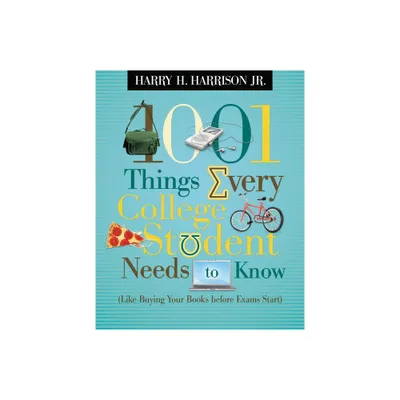Home
The College Student's Research Companion: Finding, Evaluating, and Citing the Resources You Need to Succeed, Sixth Edition
Loading Inventory...
Barnes and Noble
The College Student's Research Companion: Finding, Evaluating, and Citing the Resources You Need to Succeed, Sixth Edition
Current price: $24.99


Barnes and Noble
The College Student's Research Companion: Finding, Evaluating, and Citing the Resources You Need to Succeed, Sixth Edition
Current price: $24.99
Loading Inventory...
Size: OS
*Product Information may vary - to confirm product availability, pricing, and additional information please contact Barnes and Noble
Most college students are novice researchers for whom Google is the option of first resort. But the information provided by the surface websites usually found this way often lacks substance and is of questionable authority. You can save your students from fruitless, random web searching with the help of this cutting-edge guide, newly updated to reflect the broad range of today’s information sources. It’s a must-have tool for first-year composition and information literacy courses, LIS collections, and graduate-level research. With this trusted resource by their side, students will
master the skills needed to integrate quality informational sources into their writing, enabling them to craft better essays;
receive guidance on topic selection, time management, and research planning;
learn a five-step process for evaluating sources;
be introduced to the fundamentals of database searching, using reference sources, and finding periodical articles, books, and websites;
get pointers on using sources properly, with advice on citing them according to widely used documentation styles, avoiding plagiarism, quoting or paraphrasing correctly, and incorporating notes; and
find review questions and exercises at the end of each chapter, reinforcing the concepts they have just learned.
master the skills needed to integrate quality informational sources into their writing, enabling them to craft better essays;
receive guidance on topic selection, time management, and research planning;
learn a five-step process for evaluating sources;
be introduced to the fundamentals of database searching, using reference sources, and finding periodical articles, books, and websites;
get pointers on using sources properly, with advice on citing them according to widely used documentation styles, avoiding plagiarism, quoting or paraphrasing correctly, and incorporating notes; and
find review questions and exercises at the end of each chapter, reinforcing the concepts they have just learned.
















